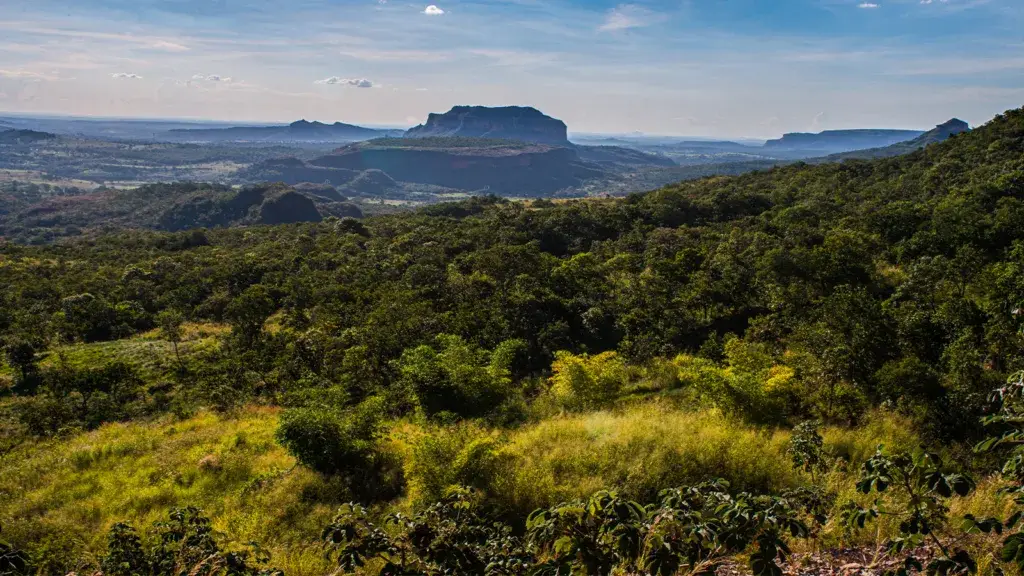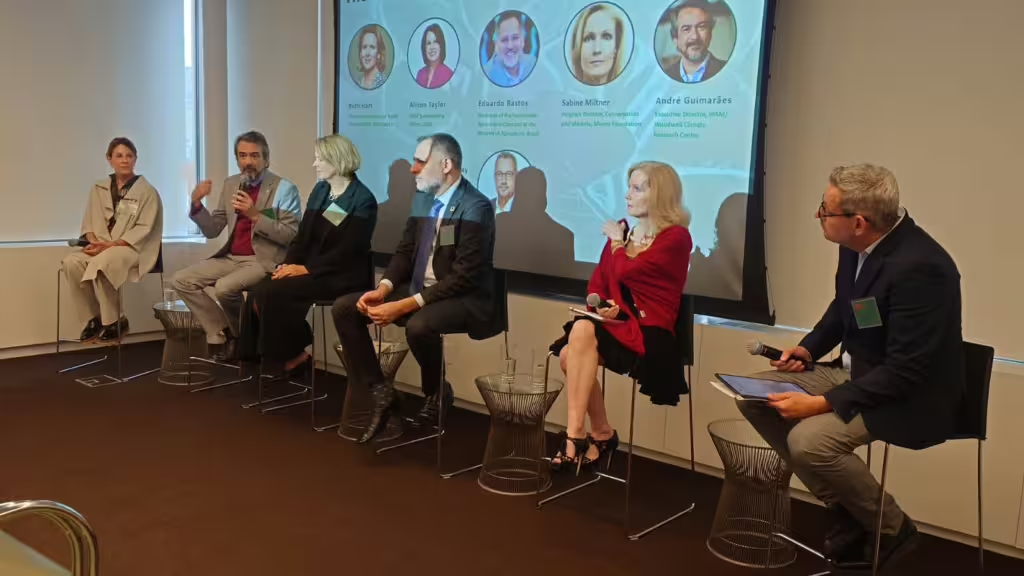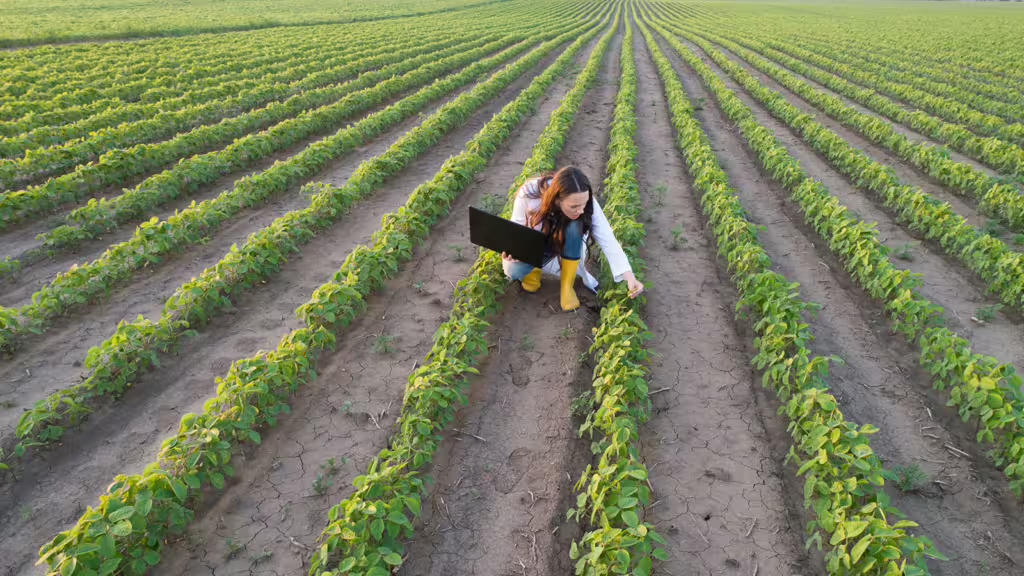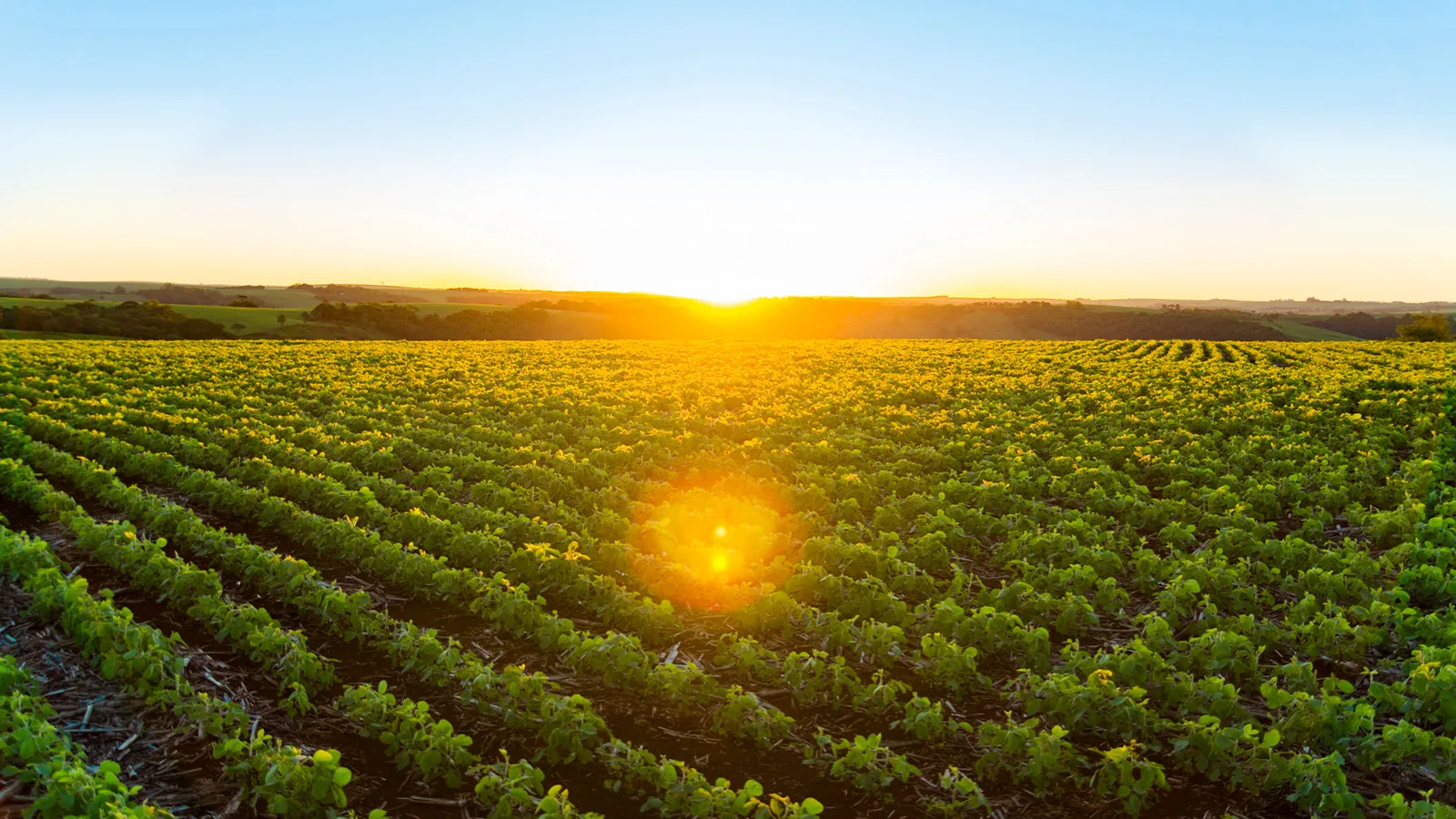Authors
Fiona Cromarty, Associate, Food & Forest Finance
The Brazilian Cerrado, one of the most biodiverse biomes on earth, has been transformed into a hotspot for industrial agriculture, accounting for 60% of Brazil’s agricultural production and 54% of Brazilian soy yields. This expansion does not come without a cost – it has driven deforestation and conversion of more than half of the Cerrado’s native vegetation and ecosystems, threatening its vital role as a carbon sink, freshwater source, and habitat for 5% of the planet’s species. To sustain economic development and meet current and future soy demand while protecting vital ecosystem services, the existing production model must evolve.
This transition can create unique investment opportunities, realign the production of agricultural commodities with the needs of the planet, and put farmers at the center. The World Business Council for Sustainable Development (WBCSD), through its Secretariat of the Soft Commodities Forum (SCF) and Forest Investor Club (FIC), is developing a financing strategy that can make deforestation-and conversion-free (DCF) soy production attractive to producers who are legally entitled to additional land conversion. At the same time, this strategy would allow supply chain companies to meet their no-deforestation commitments and attract commercial investors.
This financial strategy can help scale existing or future landscape-level initiatives in the Cerrado, such as the Farmers First Clusters (FFC) initiative. The FFC program includes a holistic set of producer incentives to adopt DCF practices in the Cerrado, recently completing its first of a three-year US $7.2M pilot program (grant-funded by SCF agri-trader members). Currently, the FFC has 223 farms enrolled, conserving over 5,000 ha of native vegetation and nearly 200 ha of degraded land under restoration. The FFC has recently received downstream support from members of the Consumer Goods Forum Forest Positive Coalition through the Sustainable Landscapes Partnership. However, the FFC must move beyond grant-based funding to ensure it is financially self-sustaining and to scale the initiative geographically.
On 7 November 2024, in collaboration with Conselho Empresarial Brasilero para o Desenvolvimento Sustentável (CEBDS) and with support from the Deutsche Gesellschaft für Internationale Zusammenarbeit (GIZ) GmbH, WBCSD convened a select group of actors for a roundtable discussion in São Paulo, including soy supply chain companies, financial institutions and expert NGOs. Together, the group discussed opportunities, challenges and the right conditions needed to shift the status quo and provided punctual feedback on applying the proposed financial strategy to the FFC initiative.
Roundtable participants expressed interest in the concept while highlighting several necessary conditions for implementation. These include substantial supply-chain actor engagement and commitments, catalytic capital to de-risk investments until proof of concept, attractive ticket sizes for commercial investors, and low transaction, due diligence and monitoring costs. Our initial learnings indicate important stakeholder interest and engagement in advancing financial solutions for DCF production in Brazil, with more time needed to develop a multi-stakeholder financial mechanism, build momentum and secure broader participation. Read more about the Brazil DCF Finance Roundtable 2 Pager pdf.
Scaling holistic regenerative landscapes in Brazil
This year, WBCSD is also launching a broader Brazil Landscape Accelerator (LAB) addressing some of the systemic bottlenecks identified in the November roundtable. This program was born out of the global Action Agenda on Regenerative Landscapes and developed in partnership with the Brazilian Ministry of Agriculture (MAPA), CEBDS and BCG, among others. The LAB is working beyond DCF soy to pre-competitively elevate and embed successful models of regenerative agriculture and land use into policy and finance levers in Brazil – as a multistakeholder sprint towards COP30 in Belem.
By centering the landscape concept in its Brazil strategies, WBCSD and partners are making an important contribution to Brazil’s ongoing efforts to align economic development with climate and nature goals in the lead-up to COP30. Both public and private actors have an integral role to play in transforming the current land-use model -towards one that harmonizes commodity production with economic growth, local livelihoods, and the preservation of vital ecosystems.
To learn more about the proposed financing strategy for deforestation- and conversion-free soy production in the Cerrado contact Gretel Gambarelli at gambarelli@wbcsd.org.
To learn more about the Soft Commodities Forum, Farmers First Cluster and Brazil Landscape Accelerator, contact Matt Inbusch at inbusch@wbcsd.org.
Related
Content

From Dubai to Riyadh: the COP28 Action Agenda on Regenerative Landscapes reports on progress and launches first Landscape Accelerator in Brazil
5 December, 2024

Commodity value chain actors unite for forest-positive Cerrado landscapes
21 October, 2024

Unlocking finance for food system transformation: why metrics matter
15 October, 2024

